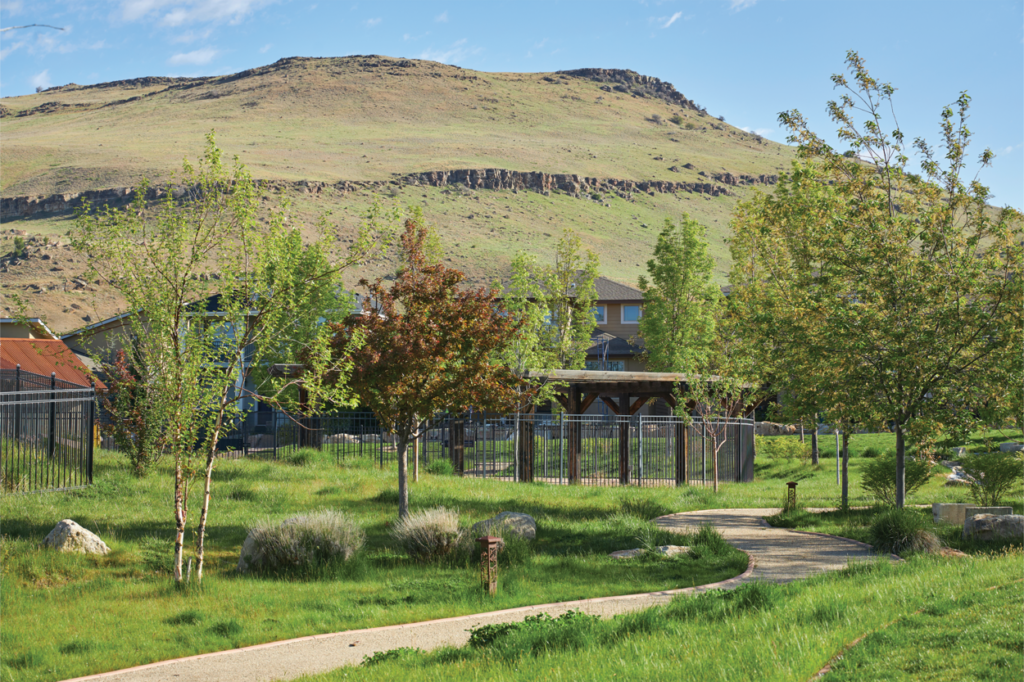Litigation around the Harris Ranch Community Infrastructure District (HRCID) is poised to prolong its already lengthy timeline in the courts. On Thursday, May 11, Bill Doyle, Larry Crowley and the Harris Ranch Community Infrastructure District Taxpayers Association (HRCIDTA) filed a motion for a rehearing after an Ada County judge denied every one of their claims. Further, the group indicated in the media that they plan to appeal the ruling.
Residents hoping for their long-awaited amenities will have to wait longer as the court proceedings continue, but time isn’t the only thing wasted by the persistent litigation. More than $2 million in CID funds that were to be used to build community infrastructure, like green spaces, parks, roads, and more, have been lost due to the delays.
Barber Valley Development, Inc., the developer of Harris Ranch, had an economic report prepared in January 2023 by a third party to detail just how much the lawsuit was costing all parties involved. That report can be read here, and the addendum, prepared in March 2023, which updates the section related to damages incurred can be read here.
As detailed in the report, the CID funds, which are taxpayer dollars used to fund infrastructure projects in the community, have taken a major hit from the delay caused by the legal challenges. There are two primary reasons for the financial hit: interest accrued on delayed repayments (along with the impact of inflation) and legal fees to fight the lawsuit.
Inflation Related Losses
The report further details future losses in a reduction in buying power due to the rapid rise in inflation over the 19 months since the suit was filed. Even if the lawsuit had been ultimately resolved recently, homeowners in the CID would still suffer $1.6 million in damages as a reduction in buying power for their dollar. As appeals and additional suits are brought by the HRCIDTA, this number will continue to grow.
Interest Accrued
The lawsuits brought by the HRCIDTA have caused more than $11.5 million in approved reimbursements to the developer to be delayed. Though these payments are paused during litigation, the interest continues to accrue, meaning the longer the issues take to play out in court, the more funds from CID will be used for reimbursement of interest. This reduces the dollars able to be spent on improvements to the community. So far, the interest accrued on the sum to be reimbursed is about $2.5 million, which comes from the taxpayer funded CID coffers.
Not included in the report, but of further detriment to the HRCID’s accounts, is $700,000 appropriated by the City of Boise for attorney’s fees to defend the HRCID against Doyle, Crowley, and HRCIDTA’s claims. These funds will eventually be repaid to the City by the taxpayer-funded CID.
In total and at today’s rates, every month that the lawsuit drags on adds about $270,000 in damages.
Following the court’s complete denial of Doyle, Crowley and HRCIDTA’s claims, homeowners in the HRCID should consider whether the ongoing costs are worth the time, effort, and substantial loss in resources available to improve their neighborhood.

